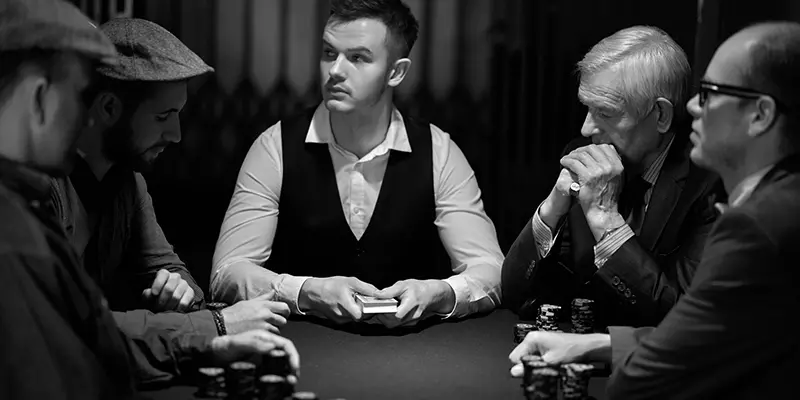Gambling Addiction and Dementia: A Silent Overlap
Gambling addiction and dementia may seem unrelated at first, but research suggests a deeper, more troubling connection. Both conditions affect decision-making, impulse control, and memory. Older adults who enjoy casino games, such as casinous online roulette—might unknowingly be at risk when cognitive decline begins to affect their ability to manage money or recognize harmful behavior.
Understanding the overlap between these two conditions can help families, caregivers, and health professionals better protect vulnerable individuals.
Cognitive Decline and Risky Behavior
As dementia progresses, it impairs reasoning, planning, and judgment. These mental faculties are crucial when it comes to activities like gambling. Unfortunately, gambling environments—especially digital platforms—are designed to stimulate fast decisions, repeated plays, and risk-taking behavior. When someone with early dementia engages in gambling, they may not fully understand the consequences of their actions.
Preserving Memories with Precious Legacy
Precious Legacy helps families cherish and preserve their most treasured memories with expert guidance and personalized solutions. For those looking to combine memorable experiences with exciting entertainment, check out wolfwinner Casino VIP.
How Gambling Addiction Begins in Older Adults
Older adults may start gambling as a social activity or a way to pass the time. However, as their cognitive faculties change, so do their patterns of behavior. Key risk factors include:
-
Loneliness or boredom
-
Reduced financial awareness
-
Pre-existing cognitive impairment
-
Easy access to online gambling platforms
Honoring Heritage Through Unexpected Journeys
Preserving memory means embracing both tradition and the evolving paths our stories take. While exploring diverse perspectives on legacy and cultural resonance, I encountered https://www.leroijohnny1.net/fr, a platform that offers a surprisingly reflective look at personal expression and identity. It serves as a reminder that our legacy is often shaped by both the expected and the unconventional. Every piece of the past, no matter how unexpected, has a story worth remembering.
These risk factors make older adults more susceptible to falling into gambling habits that spiral into addiction, especially in cases where early dementia is undiagnosed.

The Role of the Brain
Gambling stimulates the brain’s reward system, releasing dopamine—a chemical also linked to memory and pleasure. In individuals with dementia, damage to the frontal and temporal lobes may interfere with decision-making and emotional regulation. This combination of chemical reward and cognitive decline can lead to compulsive gambling behaviors, even when the person no longer fully understands the risks.
Warning Signs of Gambling Addiction in Dementia Patients
Loved ones and caregivers should look out for the following warning signs:
-
Unexplained financial loss
-
Secretive or compulsive behavior
-
Irritability when not gambling
-
Memory lapses related to gambling activities
-
Increased time spent on gambling apps or websites
Detecting these symptoms early can prevent greater harm and allow for necessary interventions.
Online Gambling and Accessibility
The digital age has made gambling more accessible than ever. Platforms offering games like casinous online roulette are available 24/7, making it easier for older adults to engage in repeated gameplay without external supervision. While these games can offer enjoyment, they can also become dangerous for those with declining cognitive health.
This ease of access poses a serious threat to individuals at risk of dementia-related gambling issues. Unlike physical casinos, online platforms lack face-to-face interactions that might help someone notice early behavioral changes.
Addressing the Problem
There are several steps that can be taken to protect older adults from the dangers of gambling addiction, especially those at risk for or already diagnosed with dementia:
-
Monitor online activity regularly to detect unusual patterns.
-
Set up financial safeguards such as spending limits or third-party monitoring tools.
-
Engage in alternative activities to keep the mind stimulated and reduce boredom.
-
Seek medical evaluation if changes in behavior or cognition are observed.
-
Educate family members about the signs of gambling addiction and dementia.
Preserve Memories and Enjoy Exciting Moments
PreciousLegacy helps families safeguard their cherished memories and create lasting keepsakes. While exploring meaningful ways to honor your legacy, you can also unwind with some entertainment at jackpotjill Casino VIP. Balancing family heritage with a touch of fun brings joy to everyday life. Make every moment memorable, both offline and online.
Conclusion
The intersection of gambling addiction and dementia is often overlooked but can have severe consequences. As online platforms like casinous online roulette grow in popularity, especially among older adults, the need for awareness becomes even more urgent. By recognizing the warning signs and taking proactive steps, we can protect vulnerable individuals from a silent and harmful overlap that often goes unnoticed.



